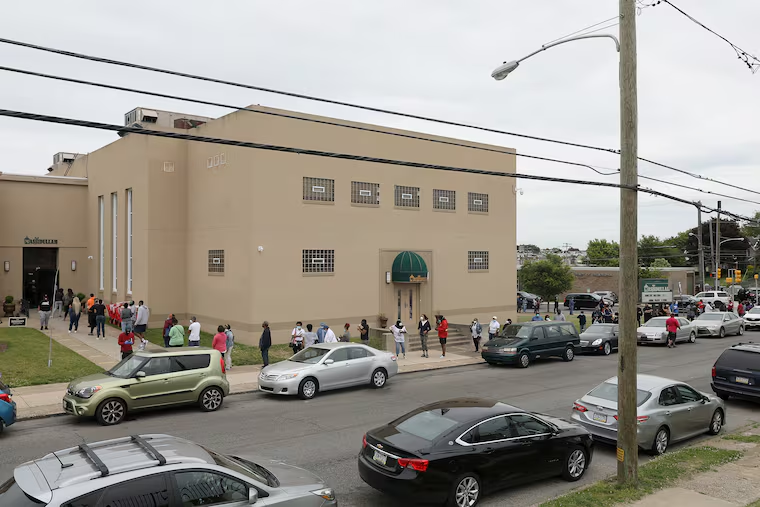Polling locations in Northwest Philly got the wrong voting machines, causing confusion and long lines: ‘It was a mess’
The ward in Northwest Philadelphia is one of the highest turnout locations in the city. "It was a mess," a member of City Council said.

Voting in Philadelphia’s busy 50th Ward started off messy Tuesday when polling locations were delivered machines meant for neighboring poll places.
The problem was corrected by late morning, city officials said, though the wait to vote in parts of the busy ward was still about 90 minutes by early evening.
The ward in Northwest Philadelphia is one of the highest turnout locations in the city, and lines started forming around the block at polling places like the Masjidullah Temple early in the morning. Several divisions had already been consolidated into polling locations, making the crowds larger.
Councilmember Cherelle Parker, who is also ward leader in the area, said multiple polling locations were delivered the wrong machines.
“They were all at the wrong locations. It was a mess.” Parker said.
The office of the Philadelphia City Commissioners, who oversee elections, confirmed a mix-up had occurred with polling places receiving the wrong voting machines, including at the mosque. Voters used paper emergency ballots before the correct machines were set up.
» READ MORE: Live coverage of the 2020 Pennsylvania primary election
While voting machines were being fetched, the line to vote stretched from Masjidullah, around the corner and down the block, all the way to Ogontz Avenue. Parker walked up and down the line that snaked around the block, thanking voters for their patience.
“We know this is not normal,” she told them.
Parker said that once notified, city officials corrected the problem. But those in line from 7 a.m. to 9:45 a.m. had to vote via emergency paper ballot. She said she worked the lines to ensure folks their votes would be counted, but encountered skepticism.
“There’s a strong distrust for this vote-by-mail process,” Parker said. “There’s a strong distrust. And people feeling like voter suppression is real. And they know that there are folks across this nation and this city and all over who would prefer that they did not vote. And then they wake up this morning to know that they’re standing in line and when they get there, they can’t vote."
“The average person can’t be expected to know what happened with the machines," she added. "The only thing that they know — ‘I’m going to exercise my constitutional right to vote and those damn machines were not there.’”
The coronavirus pandemic may not have deterred the voters who showed up, but it was a source of their confusion. The city consolidated polling places because of the public health crisis. Some voters stood in line wondering whether they were in the right place. Some former polling places lacked signs directing people to new sites. At least a few voters had already stood in line at one polling place, only to be told they couldn’t vote there.
While Parker commended city officials for fixing the voting machine problem early, the polling place consolidation continued to have an impact on wait times into the early evening. The lines to vote at the mosque at 5:30 numbered at least 100 people.
Elections experts generally agree on a benchmark of half an hour as the maximum acceptable length of time voters should have to wait at a polling place.
Rasheen White, 50, cast her ballot after waiting an hour and a half. She was tired and had not expected such a line, but said people were friendly.
“I wanted to come,” she said. “Just doing my duty.”
Poll workers had reorganized the site by late afternoon to make separate lines for each section of the alphabet, and a volunteer in a yellow vest was walking up and down the queues directing people.
City project manager Melissa Scott-Walker, who was there to help with the crowds, said people had been understanding.
“I think people realize that we’re in the middle of a pandemic” she said, “and things [won’t be] normal.”
-Staff writer Jonathan Lai contributed to this article